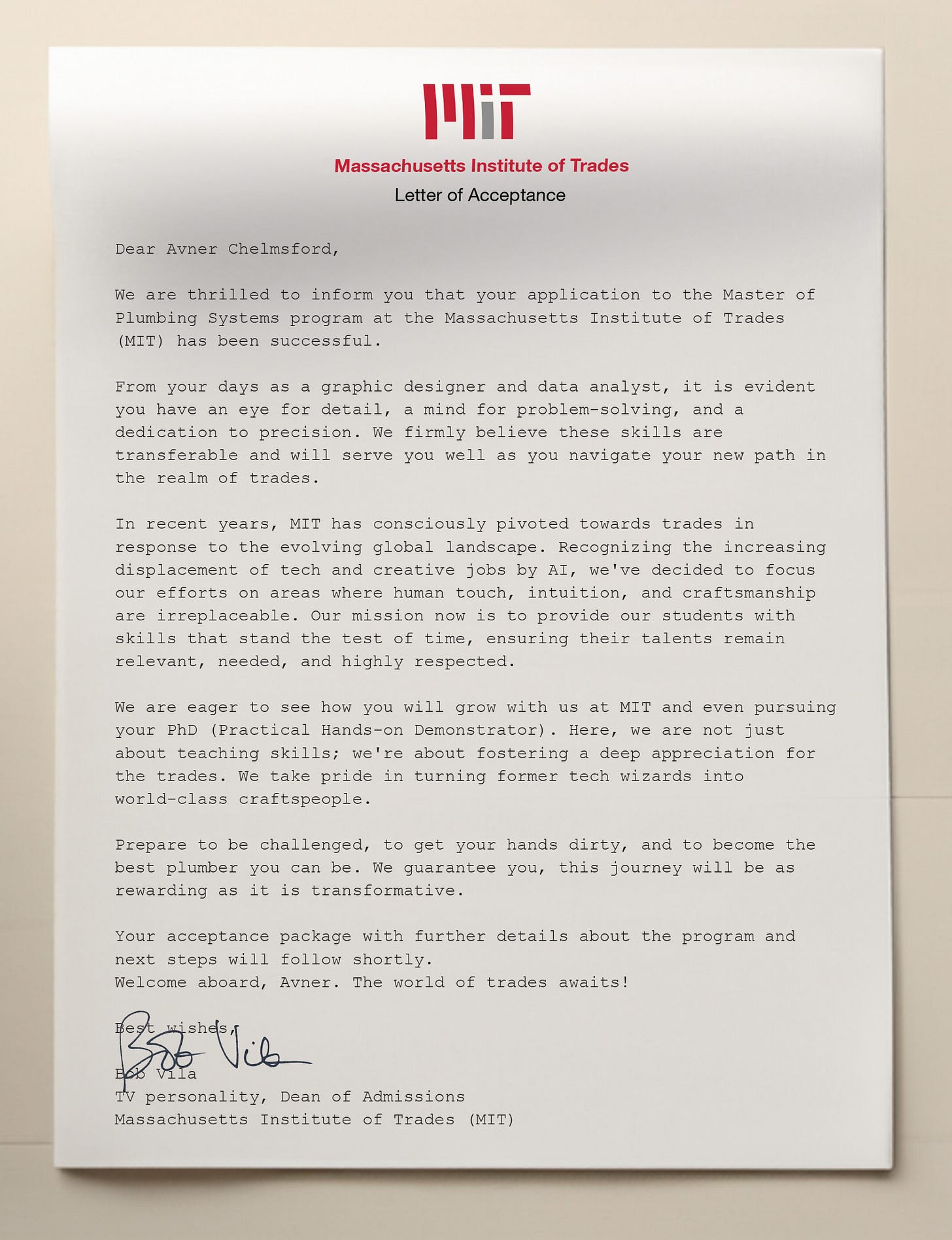Higher Education Pivots to Trades
In the face of automation, universities ditch the old for the new (which is older than old).
Lemme take a close-up shot of this letter for you.
While taking the janky time machine for a casual jaunt, I popped by my buddy Avner's digs to toast his acceptance into MIT...which in this reality stands for the Massachusetts Institute of Trades, a necessary pivot now that AI has made tech jobs about as useful as a chocolate teapot.
Back in my high school days (in my primeline, mind you), our equivalent of STEM was the unforgettable duo of Shop Class and Home Economics. I adored those classes. They equipped me with practical skills that have held up in multiple timelines and parallel universes. However, when STEM came barreling into curricula, it brought along a heap of fantastic new skills, but tragically gave the cold shoulder to anything resembling trades. You know, the subjects that let you get down and dirty.
So, let's fast-forward a smidge. Many STEM subjects have now become stepping stones to careers overtaken by automation, pushing higher education institutions to pivot to where the demand (and let's be honest, the dough) has landed. And what might that be? Trades, my friend. Activities that would leave an AI like ChatGPT scratching its virtual head.
So now we have the Stanford Universi-tools, Hardwork University (previously known as Harvard), and University of Craft-ifornia, Berkeley. These establishments are leading the charge in high-end trades education, offering prestige titles and designations like:
PhD (Practical Hands-on Demonstrator)
MSc (Master of Skilled Craftsmanship)
BA (Builder of Artifacts)
MFA (Master of Functional Artistry)
MA (Master of Artisan Techniques)
MBA (Master of Building Applications)
It’s funny how old became new here.





Love this, nice find from your trip in the janky Time Machine.
Transcripts and grades, which tell little of what guild members (formerly undergrads) can actually do, give way to skill-prints. Like the unique contours of a fingerprint, the skill print is a visual portfolio map highlighting projects and the process of transformation (skill-print was an idea I first saw in the Stanford2025 future of higher Ed project).